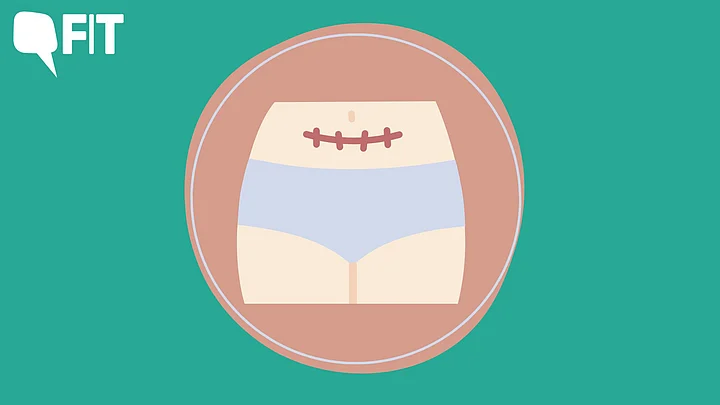There are various treatments for cervical cancer depending on the stage, but hysterectomy is the most-preferred option for people in the early stages of the disease.
Data shows that early-stage cervical cancer has a 5-year survival rate of 92 percent. But as cancer spreads, the survival rate drops, say experts, adding that this is where hysterectomy comes in.
FIT spoke to Dr Neethu Puthalon Kunnath, Gyneco-Oncologist & Surgeon, Department of Gynaecological Oncology, and Dr Renu Sehgal, Gynaecologist to understand this treatment option.
Why is hysterectomy used in cervical cancer treatment?
The cervix is a part of the uterus. So depending on the stage of the cancer, hysterectomy is performed to remove the uerus, thereby removing the cancer. Along with surgery, chemotherapy, and radiation also play an important role in cervical cancer treatment.
Dr Renu Sehgal told FIT, "Hysterectomy with lymph node dissection is used for stage 1 early 2 stage of cervical cancer."
"Hysterectomy helps in removal of cervix which is involved by the tumour. The final histopathological examination of hysterectomy specimen helps in knowing if any other adjuvant treatment after surgery."DrNeethu Puthalon Kunnath, Gynec Onco Surgeon, Dept. of Gynaecological Oncology, Amrita Hospital, Kochi
When should a person opt for hysterectomy?
Hysterectomy can be performed only at an early stage of the disease once the person gets a detailed consultation and examination by a gynaeco-oncologist.
A hysterectomy can save the life of a person if:
They have uterine or ovarian cancer
The uterus is bleeding continuously and real fast and cannot be stopped
The cancer has not spread elsewhere
In some situations, hysterectomy is performed to improve a woman’s life and is not required to save her life. This is known as elective hysterectomy. It can help in relieving pain, heavy bleeding, and discomforting problems of sorts.
But whatever the case may be, one should weigh all options and their side effects with your doctor, say experts.
What are the benefits of hysterectomy?
Some life-changing benefits of hysterectomy include:
Removal of cancerous tissue
Improved quality of life
Stopping abnormal heavy bleeding
Relieving chronic pain
Being able to enjoy pain-free sex
Can it lower the risk of cancer?
Dr Renu Sehgal said that performing the procedure of hysterectomy on a person can prevent cancer if uterus is taken out during the pre-cancer stage.
"Hysterectomy can sometimes be used to treat cancer associated with the uterus, specifically endometrial cancer. A risk-reducing hysterectomy on the other hand refers to the removing a healthy uterus to reduce the risk of a person getting cancer," she said.
The procedure like any other surgery has its risks and side effects. It's important for people to speak with experts in order to learn about the risk of endometrial cancer to be able to make an informed choice regarding the correct option for lowering the risk.
What are the risks?
Hysterectomy in cervical cancer removes the whole chunk of disease and prevents further progression. But it is a very critical surgery and the recovery period takes a while. Like every other health related concern with its pros and cons, this too has its risks like:
Blood clots
Severe infection
Bleeding
Bowel blockage
Issues related to anesthesia
Internal injury
Urinary incontinence
What are the post op things one needs to keep in mind? How long does the recovery period take?
The recovery period of a vaginal and laparoscopic hysterectomy takes lesser time as compared to an abdominal hysterectomy. The recovery period post hysterectomy for most people takes around 4-6 weeks.
The entire healing process also depends upon the type of hysterectomy the person had to undergo had and performance of the surgery.
Apart from the recovery period, here are a few things one needs to keep in mind post op:
Don’t lift heavy objects during the recovery period.
Wait for 4-6 weeks to resume any sexual or heavy physical activity like exercising.
You can take a shower, but don't allow the water to hit the incision directly. Dry it off by patting gently and not rubbing.
Eat a protein rich food, fruits and vegetables. They will help with healing better post-surgery.
You can resume work in 4-6 weeks. The time period also depends on the kind profession you have.
You would have to undergo the required chemotherapy and radiation.

